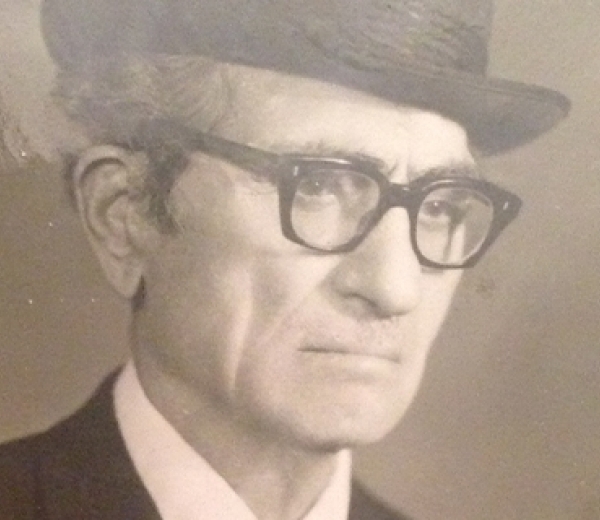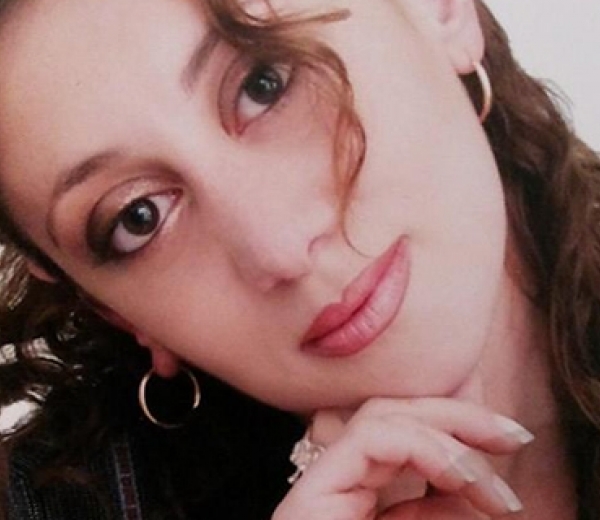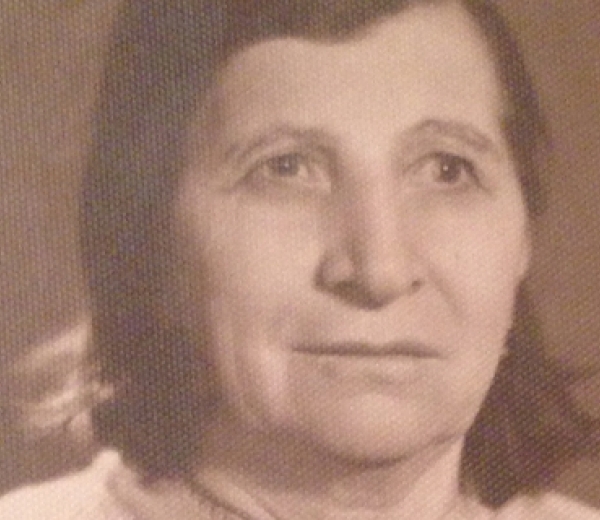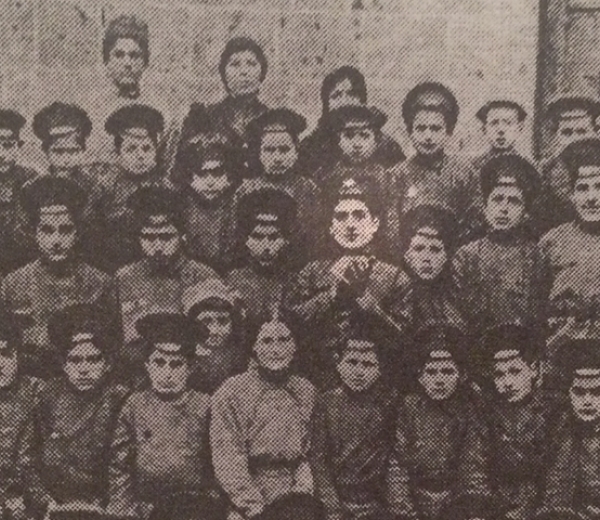|
Composer Marina Tagakchyan
|
“My grandfather overcame numerous difficulties during this flight. One time, he escaped death by hiding in a sack of wheat. He must have had some inner strength that forced him to resist, to live and maintain the family name,” says Marina, who frequently used to sit with her grandfather near the walnut tree. “I was only eight. Sometimes my grandfather would relate some things. Now, I think that everything was quite serious to be telling a child. Perhaps, making me out to be him when small, he was talking with himself, remembering and thinking.”
Freedom
Fleeing from Ghazo’s house in early June 1916, Ghoukas reached Mush alone. “I met the Russian soldiers. They gave me bread. They gave me a change of clothes and questioned me: where did I come from and where was my family. I said that there were 27 in my family and that all had been killed. Only I…..and I started to cry my eyes out,” Ghoukas writes in his memoirs. Entering Mush, he met his uncle Krikor, who was living in the two-story house of a wealthy Turk. The owners had left after the Russians arrived. Ghoukas went to live with Krikor.
Sometime later, they started to gather up the orphans, Ghoukas included. The orphans were taken to Khnous, Kars, and then Alexandropol (Gyumri)). “I was in the orphanage by December. It was called the 5th or the Sasoun Orphanage, located opposite the Holy Savior Church.”
While in the orphanage, Ghoukas mets General Andranik. He tried, unsuccessfully, to continue his education in Tbilisi or Etchmiadzin, but took a job at the Hayastan newspaper as a laborer.
“He was very proud of meeting General Andranik. He constantly talked about it and repeated to us the advice the general had given him: ‘In this world, the pitiable and the weak cannot survive. They will be swallowed by those who are unjust and powerful’,” recounts Marina.
“From July 21, 1915 until March 10, 1916, I was subjected to terrible torment and suffering. Hungry and without shelter, I wandered the forests and valleys, sometimes with others or alone. Finally, under the supervision of the Turkish gendarmes and enslaved by the Kurds, I witnessed the murder of innocents, the unburied and tortured corpses, the piles of skeletons of men, women and children or of those newly butchered. In Sasoun, in the forests and dales of Antog, Gelyesan and Grishig, in the gorge of Barbar and all over, it was common to stumble upon skeletons or tortured people and sometimes the bodies of those newly murdered. I saw the flames burning Armenian villagers in their homes in Souloukh. Now it is impossible to describe those horrific images. But I have written down those real events and my impressions to the best of my ability.” This is how Ghoukas Hovhannisyan from Sasoun sums up his memoirs.




